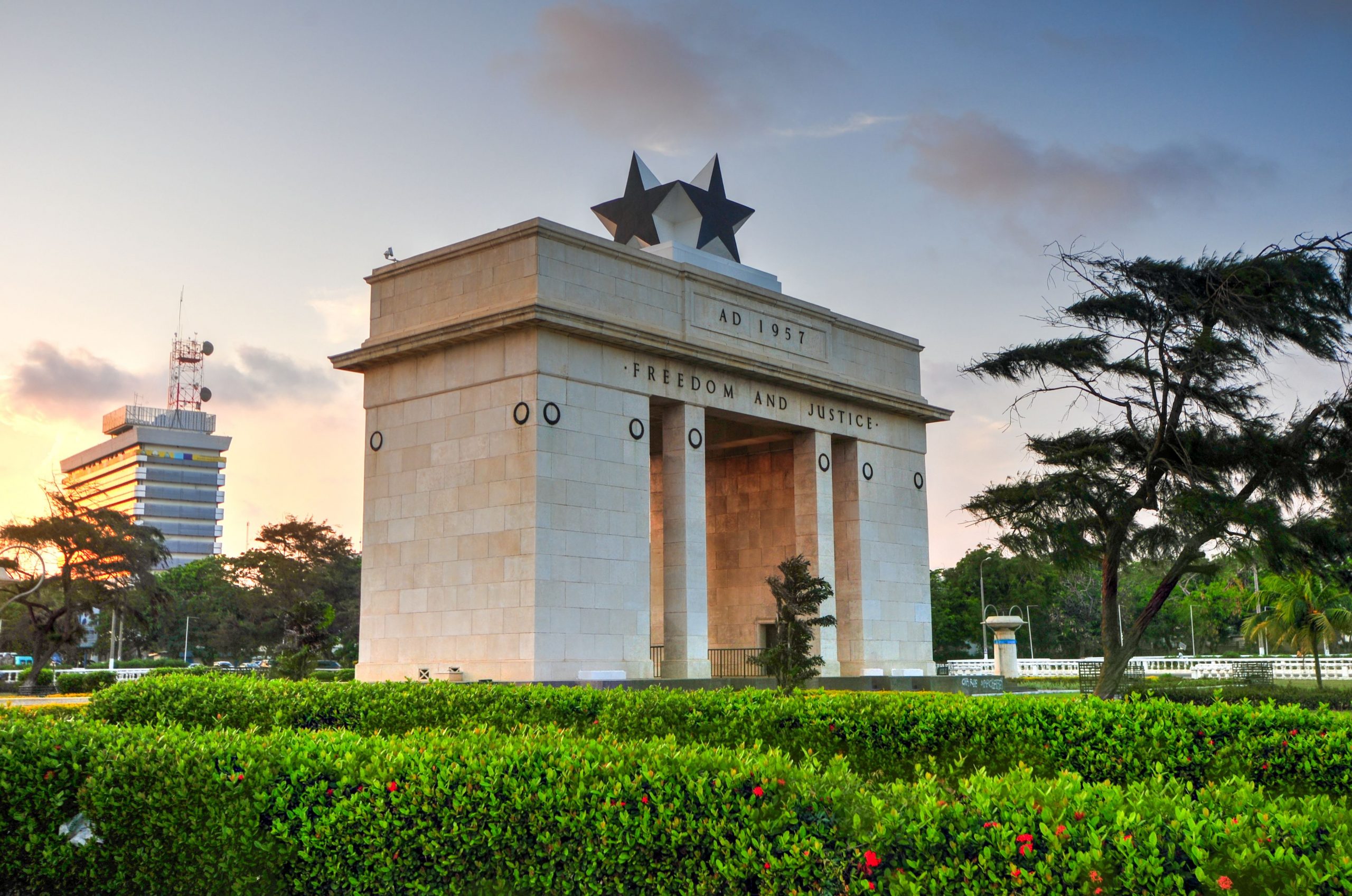
Organizational Ethics and the Broader Society
The Code of Ethics for the Ghana Civil Service was crafted with a broader view of the society in mind and in fact places a high priority on relations with the society. This is clearly seen in the preface or section labeled Part 1 of the Code of Conduct for the Ghana Civil Service. In this section, there are statements such as:
The Ghana Vision 2020 envisages a Public Administration System (PAS) which is driven by a market oriented, liberalized economy, operating in an environment of good governance. This expectation of the role of the PAS, calls for a Civil Service which is customer sensitive and responsive to its social obligations. 1 (1)
For these aspirations to be firmly established in the Ghana Civil Service culture/psyche, a Code of Conduct/Work Ethic for Civil Servants should conform to appropriate norms and standards of behavior and attitudes governing normal interactions between the Civil Servant and his employer on one hand, and his clients/public on the other. 1 (2)
The standards and norms of behavior prescribed provide a framework for promoting good governance, projecting the good image of the Civil Service, and sustaining its self-esteem in both local and international circles. (1) 3
For these rules to be pragmatic or realistic, they have been formulated to reflect the human rights of the worker, local and international labour regulations, as well as the culture of the people of Ghana and the working environment of the Ghanaian Civil Servant. (1) 4
The Code of Conduct should be viewed primarily as a guide to Civil Servants in their normal relationships and dealings with their principal stakeholders, viz, the Government, Civil Service Organizations, and the general
public. Nevertheless, provision has been made for appropriate administrative sanctions to be applied where a Civil Servant’s conduct is found to be inconsistent with the Code. (1) 5
As can be seen in the highlighted portions, the Code takes society into consideration and rightly so because ultimately the Civil Service exists to promote the public good. This should be so with all organizations. The Code goes as far as taking into view the culture of the people of Ghana since ethical conduct can be culturally relative. What may be considered ethical in one culture may be considered unethical elsewhere.
The Code of Conduct for the Ghana Civil Service also takes a broader view of the society in the sense that all its guiding principles ultimately have an impact on the larger Ghanaian society.
For instance, in Part IX under section 27(1), of the Code which speaks on personal behavior, a Civil Servant is to show courtesy and decency in his or her communication about any person or matter that is under consideration or forms the subject of comment or response. Section 27 (2) instructs that a Civil Servant shall refrain from the use of insulting or intimidating words against a customer. In so doing they are being admonished to be respectful to society for whom and to whom they are accountable. This is a clear example of the Code taking into account a broader view of society. When they do this, they are respecting society’s right to courteous treatment. Desk rage is unethical and disrespectful to society.
Again in Part VIII, this section deals with bribes, Gifts and Conflict of Interests. In subsection 25 it states, “A Civil Servant shall not demand, receive or give any bribe, nor be an agent for any person who intends to influence a Civil servant with a bribe”. Again such a provision takes into view the broader society because it discourages bribe taking for the public good. How so? Bribes constitute leakages in national revenue mobilization because this kind of ‘income’ cannot be taxed. Had these monies been put to legitimate use/transactions, they could have been taxed and the resulting revenue been use to the benefit of the entire Ghanaian society. It is from the tax that government gets money to run the entire nation. The loss of tax revenue through bribery at the end of each fiscal year is huge. I do not have the figures for Ghana but Summerour (2000) estimated that $80 billion is paid out worldwide in bribes or some other payoff every year (Ferrell). So when the Code speaks against bribery, it is because it has in mind the broader society and the reduction of total welfare that brides cause for society.
In Part IX (35), Civil Servants are not to engage in unofficial commercial activities on office premises nor shall they encourage peddlers to sell to them during working hours. This rule also takes a broader view of society. If this is adhered to, it would benefit society because Civil Servants would have enough time to attend to customers and focus on their jobs. But when this rule is disobeyed then society (i.e. the public) suffers. When a Civil Servant is otherwise occupied with personal business transactions, it results in delays in work processes which result in inefficiency.
During President Barack Obama’s first visit to sub-Saharan Africa as President of the United States of America, he addressed the Ghanaian Parliament at the Accra International Conference Center, Accra, Ghana on July 11 2009. In the speech he said, “Development depends on good governance… No country is going to create wealth if its leaders exploit the economy to enrich themselves — (applause) — or if police — if police can be bought off by drug traffickers. (Applause.) No business wants to invest in a place where the government skims 20 percent off the top — (applause) — or the head of the Port Authority is corrupt. No person wants to live in a society where the rule of law gives way to the rule of brutality and bribery” (Obama, 2009).
All the issues he enumerated as pitfalls of Africa’s developmental process border on ethical issues which the crafters of the Code of Conduct for the Ghana Civil Service foresaw and made adequate provision for. If the Code is adhered to, Ghana will develop a robust, thriving Civil Service which will unlock her potential to leap frog out of her ‘less developed country’ status into becoming economically sound and buoyant. A vibrant well functioning Civil Service is the harbinger of development. When the Civil Services are behaving ethically, good governance would be the necessary result creating a favorable climate for the private sector to thrive. But if whenever an investor wants to come invest in our economy, he has to pay bribes here and there before he can get the necessary documents to work, he/she may become discouraged and leave.
President Barack Obama went on to say that “in the 21st century, capable, reliable, and transparent institutions are the key to success — strong parliaments; honest police forces; independent judges; an independent press; a vibrant private sector; a civil society”. These qualities or virtues he outlined are the very guiding principles of the Code of Conduct for the Ghana Civil Service.
Bibliography
Ferrell, O. C. A Framework for Understanding Organizational Ethics
Obama, B. (2009). Remarks by President Barack Obama to the Ghanaian Parliament. Accra-Ghana.
Office of the Head of Civil Serviice. Code of Conduct for the Ghana Civil Service. Accra, Ghana.






